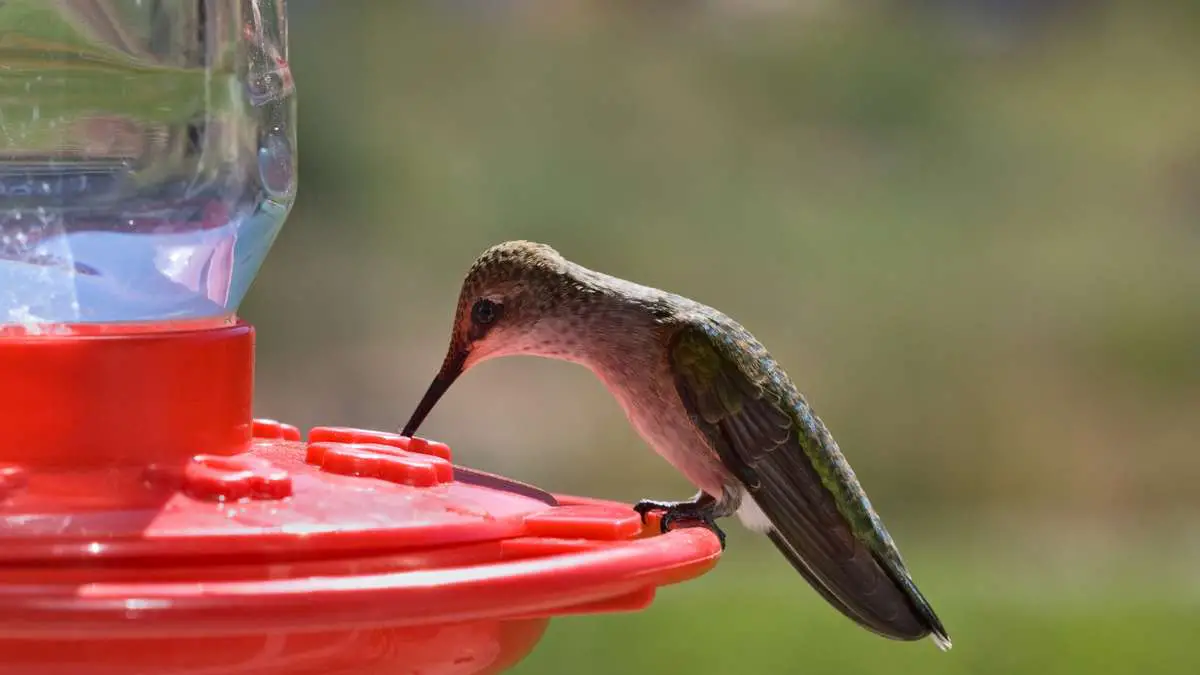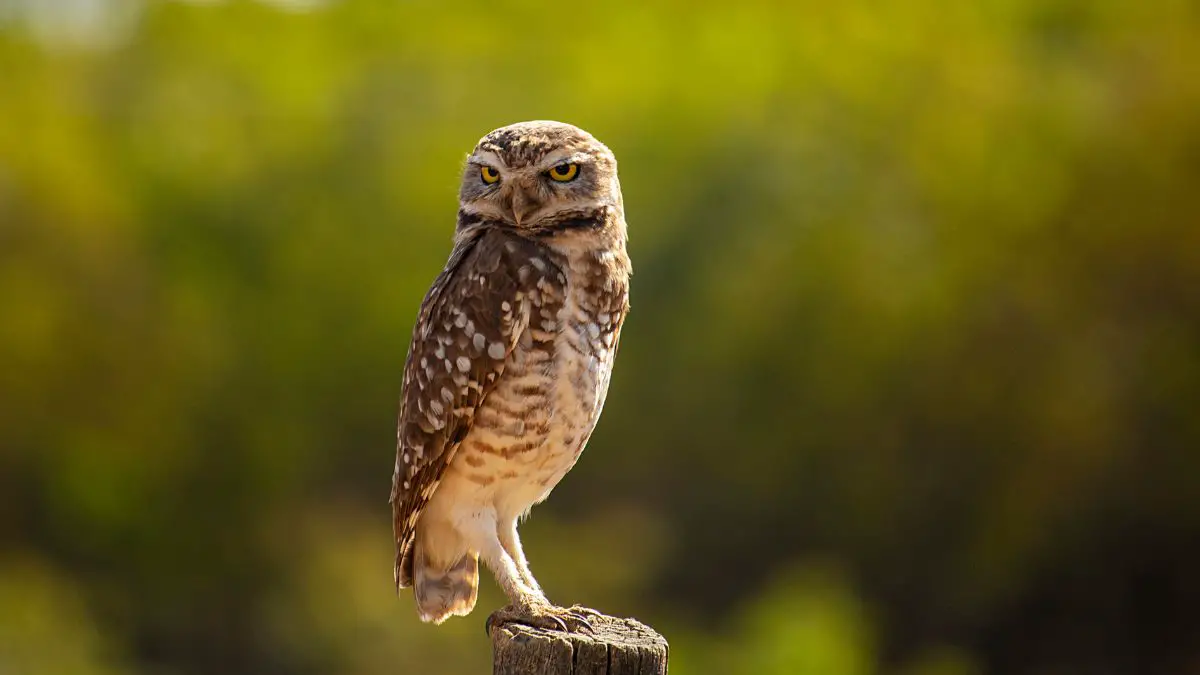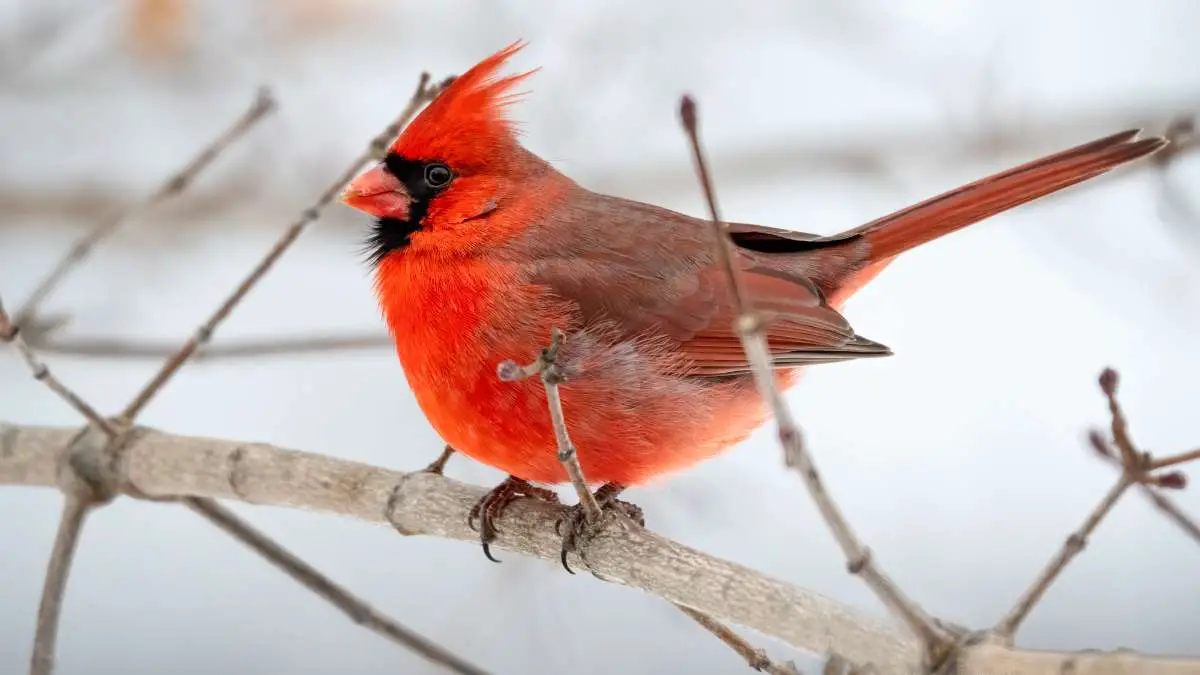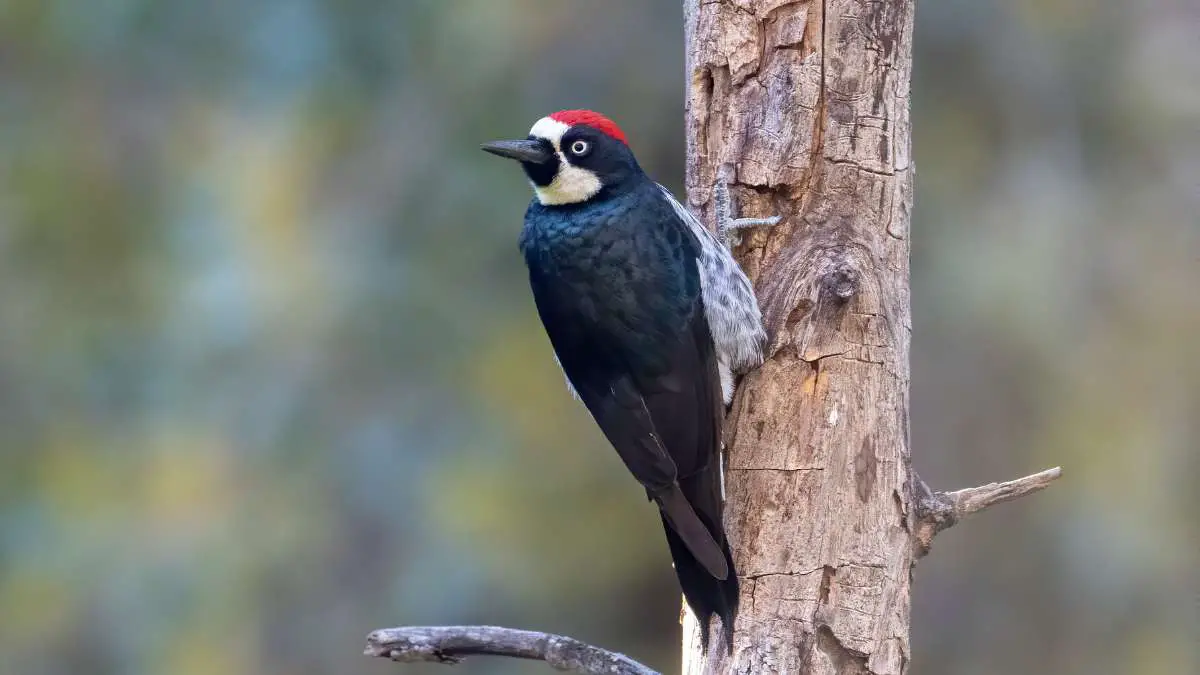Hummingbird food is a simple yet vital part of any hummingbird enthusiast’s garden. These tiny, colorful birds bring a unique charm to our outdoor spaces, and their presence can be a joy to behold.
However, there’s a common misconception about how long hummingbird food can last.
Many believe it’s a set-and-forget affair, but in reality, ensuring the freshness of their nectar is crucial.
Let’s explore this topic further to understand why it’s essential to keep our hummingbird feeders stocked with fresh food.
What Food Can You Give to Hummingbirds?
The primary food source for hummingbirds is nectar, a sweet liquid they obtain from flowers.
To replicate this in your feeders, mix a solution of white granulated sugar (avoid using powdered sugar) and water (a 4:1 ratio). Avoid using honey, as it can promote bacterial growth.
Alongside nectar, hummingbirds also need protein, which they get from consuming insects like spiders and tiny insects found in flowers.
While it’s not necessary to provide insects in your feeders, planting a variety of nectar-rich flowers in your garden can offer them a natural source of these essential nutrients.
So, by offering a mix of sugar water in clean feeders and cultivating a hummingbird-friendly garden, you’ll create a welcoming haven for these incredible birds.
How Long Does Hummingbird Food Last?

Freshness Timeline
Hummingbirds rely on nectar for their daily energy needs, and keeping their food fresh is essential for their well-being.
Generally, hummingbird food can stay fresh for about 5 to 7 days. However, this timeline can vary due to environmental factors like temperature, humidity, sunlight, and airborne contaminants.
Signs of Spoilage
Knowing when hummingbird food has gone bad is crucial for the health of these tiny, energetic birds. Spoiled nectar can become cloudy, develop an unpleasant odor, or even show signs of mold.
If you notice any of these indicators, it’s essential to dispose of the old nectar immediately.
Feeding hummingbirds spoiled nectar can harm them. It can lead to digestive problems and even make them sick and may cause death as well.
So, always make sure the nectar is fresh before offering it to these delightful creatures.
Refreshing Hummingbird Food
To ensure your hummingbird food remains fresh, it’s important to change it regularly.
In hot weather, you might need to replace the nectar every 3 to 4 days, as higher temperatures can cause it to spoil more quickly. In cooler temperatures, you can stretch the freshness to about a week.
Refreshing the food is easy. Simply empty the feeder, clean it thoroughly with warm, soapy water, and rinse it well.
Then, refill it with a fresh batch of nectar. It’s a good practice to clean the feeder every time you change the food to prevent mold or bacteria buildup.
To make hummingbird food last longer, store any extra nectar in the refrigerator. This can help extend its freshness for up to two weeks.
Why Does It Matter?
You might wonder why it’s so important to keep hummingbird food fresh.
Well, hummingbirds have high metabolisms and need a constant supply of nectar to sustain their energy levels. When natural nectar sources are scarce, they rely on feeders.
Providing fresh food ensures that hummingbirds get the essential nutrients they need. It also helps them during migration when they need extra energy.
By keeping your hummingbird food fresh and clean, you’re contributing to the well-being of these delightful birds, and you’ll be rewarded with their frequent visits to your garden or feeder.
So, remember to keep an eye on the freshness of their food to make sure your hummingbird guests stay happy and healthy.
Hummingbirds have a high metabolic rate so it will be easy to catch a germ or a pollutant in food, thus providing them fresh resources is essential to keep them healthy.
Factors Affecting Hummingbird Food Shelf Life
Temperature
The longevity of hummingbird food is significantly influenced by temperature. In warmer climates, the nectar can spoil more quickly due to the heat.
To extend its shelf life, consider placing your feeder in a shaded area, away from direct sunlight. This helps keep the nectar cooler and fresher for a longer time.
In colder regions, you can stretch the freshness of the food, but be cautious of freezing temperatures, which can damage the feeder. Insulating your feeder or using a heated one can be helpful during chilly months.
Sunlight
Sunlight can accelerate the degradation of hummingbird nectar. The UV rays in sunlight can cause the nectar to break down and become less appealing to hummingbirds.
To combat this, choose a location for your feeder that receives partial shade during the day.
This will not only keep the nectar fresher but also prevent the growth of algae in the feeder, ensuring a healthier environment for the birds.
Contamination
Contamination is another factor that affects the shelf life of hummingbird food.
Mold and bacteria can quickly develop in feeders if they aren’t kept clean. Regular cleaning is crucial to maintain the nectar’s freshness and ensure the birds’ well-being.
To clean your feeder effectively, start by taking it apart and using a mixture of vinegar and warm water to scrub away any residue.
Rinse thoroughly, air dry, and refill with fresh nectar. This routine maintenance will go a long way in keeping the nectar safe and inviting for your tiny, feathered friends.
Tips for Extending Hummingbird Food Shelf Life
Choosing the Right Feeder
Selecting the right feeder can make a significant difference in extending the shelf life of hummingbird food. Opt for feeders with designs that minimize exposure to the elements.
Look for ones with protective covers or built-in ant moats. These features help keep the nectar fresh by preventing rainwater from diluting it and deterring pesky ants from contaminating the food.
Hummingbirds will appreciate the clean and undiluted nectar, making them more likely to return to your feeder.
Proper Storage
Properly storing extra hummingbird food is essential to ensure you always have fresh nectar on hand.
When storing it, choose a cool and dark location, such as a pantry or a cupboard. This helps maintain the nectar’s quality by preventing exposure to sunlight and temperature fluctuations.
If you have a large batch of food, consider using airtight containers to seal out moisture and contaminants.
By storing your extra hummingbird food correctly, you can guarantee that you’ll be able to refresh your feeder regularly and keep your garden a hummingbird hotspot.
Conclusion
In conclusion, understanding how long hummingbird food lasts and the factors that affect its shelf life is essential for creating a welcoming and safe environment for these delightful birds.
Hummingbird food typically remains fresh for about 5 to 7 days, with temperature, sunlight, and cleanliness playing vital roles in its longevity.
It’s crucial to regularly refresh the nectar to ensure the health and well-being of hummingbirds. Spoiled or contaminated nectar can harm these tiny creatures, so keep a close eye on your feeder and make cleaning and refilling a routine.
As responsible caretakers of hummingbirds, we must maintain clean feeders and provide fresh nectar consistently.
By doing so, we not only support the nutritional needs of these incredible birds but also offer ourselves the joy of watching their vibrant presence in our gardens.
So, let’s continue to extend a warm welcome to hummingbirds by keeping their food fresh and their environment inviting. Happy birdwatching!
FAQs on Hummingbird Food
Hummingbird food should be changed every 5 to 7 days, but this timeline can vary depending on factors like temperature and sunlight exposure. In hot weather, consider changing it every 3 to 4 days to prevent spoilage.
Yes, you can refrigerate extra hummingbird food to extend its freshness for up to two weeks. Just make sure to store it in an airtight container to prevent odors from affecting the nectar.
Feeding hummingbirds spoiled nectar can harm them. It can lead to digestive issues and illness. Always ensure the nectar is fresh and free from mold or bacteria before offering it to hummingbirds.
Yes, feeders with protective features like built-in ant moats and covers can help preserve nectar freshness. These features prevent dilution by rainwater and deter ants from contaminating the food.
To clean your hummingbird feeder, disassemble it, and use a mixture of warm water and vinegar to scrub away residue. Rinse thoroughly, air dry, and refill with fresh nectar. Regular cleaning is crucial for maintaining nectar quality and bird health.
Clean feeders prevent the growth of mold and bacteria, ensuring that hummingbirds have access to safe and nutritious nectar. Regular cleaning also encourages hummingbirds to visit your garden more often.
It’s not recommended to use honey, as it can promote the growth of harmful bacteria. Stick to a simple mixture of white granulated sugar and water (4:1 ratio) to make safe and nutritious hummingbird food.
To attract more hummingbirds, plant a variety of nectar-rich flowers, use multiple feeders, and provide a clean and inviting environment. Remember to refresh the nectar regularly, and you’ll enjoy more frequent visits from these beautiful birds.




